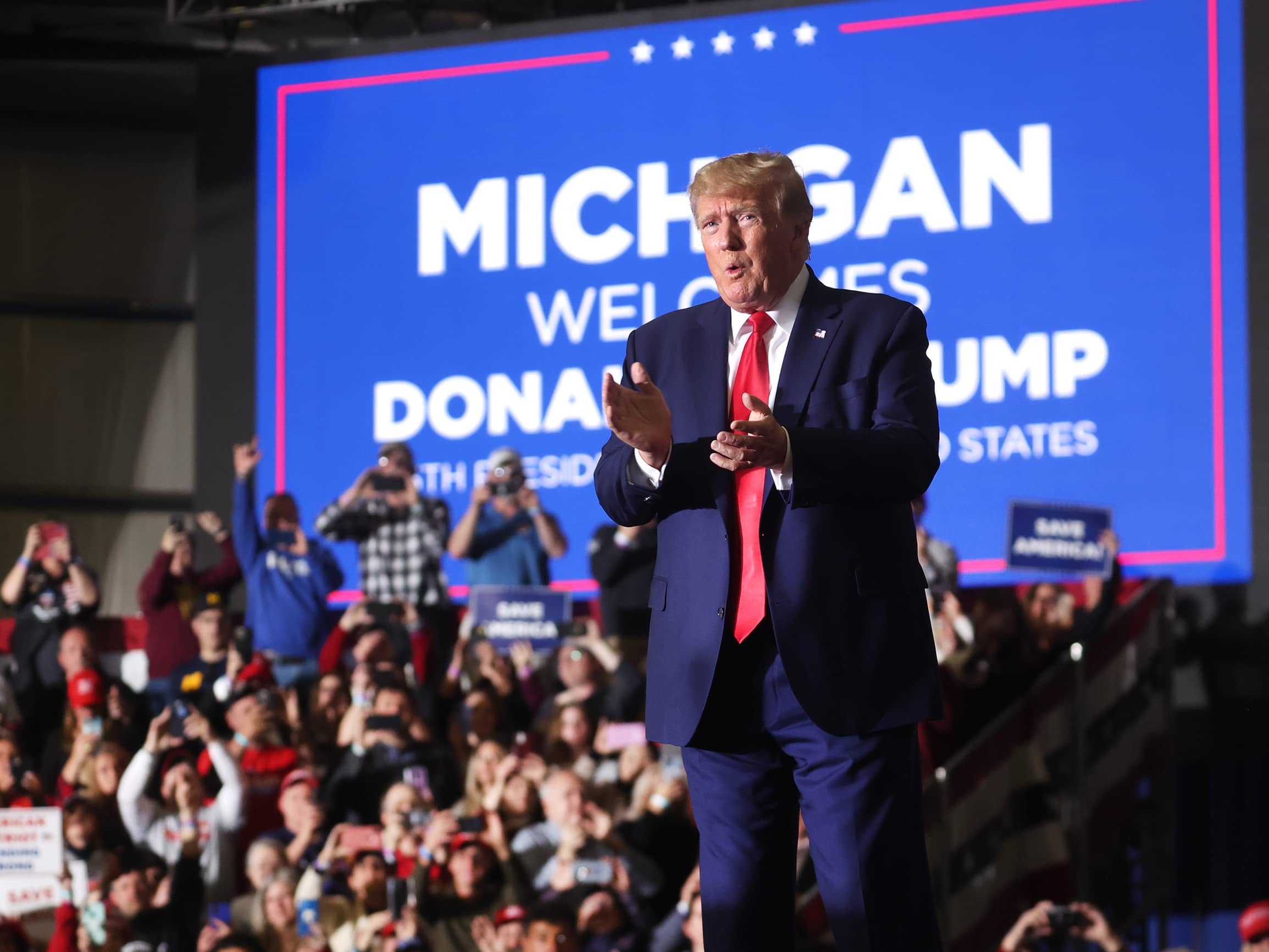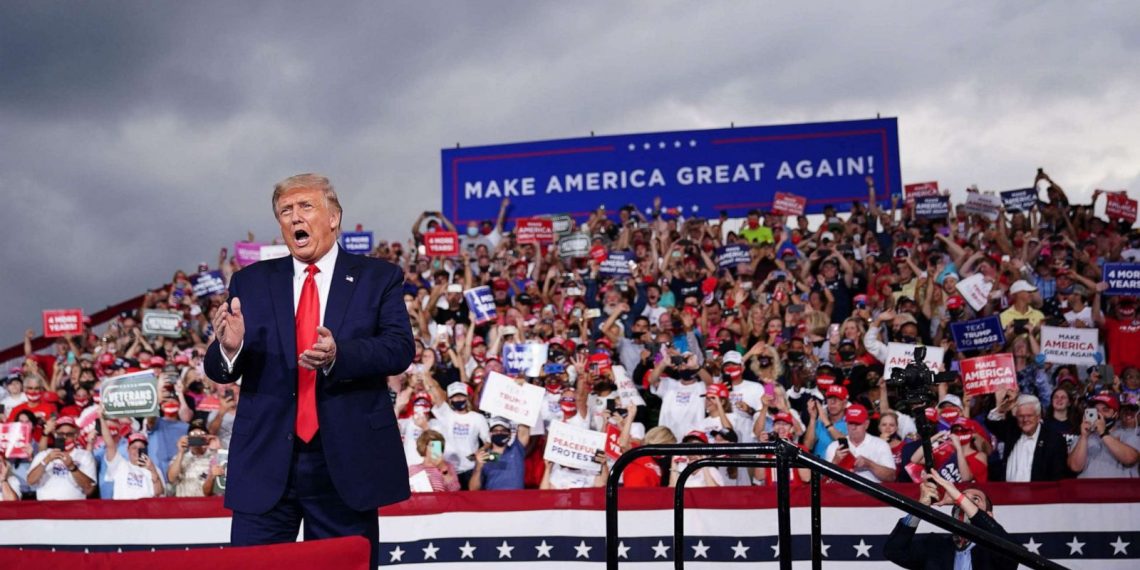Former President Donald Trump made a notable return to Michigan, a pivotal battleground state, amid significant shifts in the political landscape since his previous visit. Trump’s rally in Waterford Township marked his first public appearance after recent legal rulings intensified scrutiny of his financial dealings.
Addressing supporters, Trump criticized the judiciary system’s handling of his cases, particularly a New York judge’s decision to commence a trial on allegations of falsifying business documents and imposing a $355 million penalty for financial statement inflation. He decried what he perceived as political targeting, echoing sentiments of unfair treatment.
Michigan, crucial for Trump’s potential reelection bid, witnessed internal turmoil within the Republican Party. The abrupt ousting of Kristina Karamo, former party chair, amid fundraising struggles, underscored organizational challenges. Pete Hoekstra’s ratification as the new chairman aimed to stabilize operations but hinted at underlying discord.
Trump’s engagement in union outreach posed challenges amidst Joe Biden securing endorsement from United Auto Workers (UAW). Trump’s rhetoric at the rally, highlighting immigration concerns and critiquing Biden’s policies, aimed to resonate with blue-collar workers.

However, the endorsement indicated Biden’s stronghold among union households, a demographic pivotal in Michigan’s electoral dynamics.
Despite Trump’s efforts to appeal to labor constituencies, recent polling data suggested Biden’s lead among union households, reflecting a potential hurdle for Trump’s reelection aspirations. Trump’s critique of UAW President Shawn Fain’s leadership faced pushback, indicating nuanced sentiments within the union.
The rally showcased Trump’s determination to regain political momentum, leveraging Michigan’s significance in the electoral calculus. However, evolving party dynamics and Biden’s traction among critical demographics pose formidable challenges for Trump’s return to the presidential arena.





